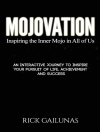In ‘The Science of Being Great, ‘ Wallace D. Wattles presents a compelling argument that greatness is not merely an abstract ideal but a systematic process accessible to all individuals. Through a unique blend of self-help and metaphysical philosophy, Wattles articulates principles grounded in personal development and positive thinking. The text is structured in an engaging manner, illuminating concepts such as the importance of self-belief and the power of thought, all within the framework of the New Thought movement. Wattles employs a didactic style, making the work both practical and inspirational, encouraging readers to harness their inherent potential for achieving greatness. Wallace D. Wattles was a progressive thinker whose ideas emerged during the early 20th century, a time when American culture was experiencing a profound reevaluation of success and personal fulfillment. His experiences with poverty and struggle profoundly influenced his dedication to self-improvement and philosophy. Wattles’s works, including ‘The Science of Being Great, ‘ reflect his belief in the universality of success principles, designed to guide individuals towards transformative personal and professional achievements. Recommended for readers seeking motivation, ‘The Science of Being Great’ serves as a timeless guide to unlocking one’s potential. Wattles’s insights are particularly relevant in today’s fast-paced world, where the quest for personal fulfillment often feels elusive. This book invites all readers to embark on a journey of self-discovery and empowerment, ensuring that the path to greatness is not only possible but achievable.
Об авторе
Wallace Delois Wattles (1860–1911) was an American author, a pioneer in the New Thought movement and a proponent of the philosophy of success. His writings have inspired many to pursue their personal development and financial growth. Wattles’ literary style combined a practical, no-nonsense approach to prosperity with a deeply spiritual understanding of the universe’s laws. Wattles is most famous for his work ‘The Science of Getting Rich’ (1910), which is often cited as a major influence on later wealth-creation gurus and authors. However, his book ‘The Science of Being Great’ is another crucial text in his bibliography, providing insights into the principles and practices of achieving personal greatness. Through his succinct and pragmatic advice, Wattles sought to empower the individual, advocating for the idea that greatness is within reach of everyone, provided they align their thoughts with powerful, positive action. Although he passed away prematurely at the age of 51, Wallace D. Wattles left a legacy of motivation and the transformative potential inherent in disciplined thought and the responsiveness to the world’s inherent abundance.












